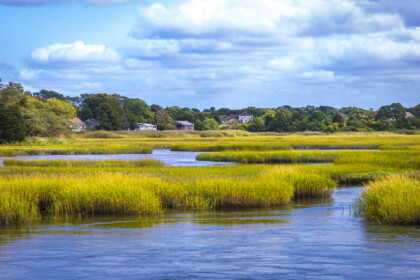
Projects & Materials

STEM Unit: Ecosystems Interactions and Dynamics

This unit was developed by Anne Poirier (Pope John Paul II) for high school Biology / Environmental Science through her 2017 Teacher-in-Residence at Cape Cod Museum of Natural History.
Using high school Biology standards for ecology (HS-LS2), students will encounter the ecosystems of Cape Cod and evaluate the interactions and dynamics between the biotic and abiotic factors within and between different habitats. This lesson plan is designed to be presented at the end of an ecology unit in order to summate the entire unit, or to allow the teacher to give a final laboratory or alternative assessment. Students should approach these activities with a basic knowledge of the vocabulary and major themes of ecology. These activities can be used to teach much of ecosystems, abiotic and biotic factors, adaptation, and interaction—but a base knowledge is assumed.
Students will research the ecosystems of Cape Cod, and apply the research to what they see in the field at the Cape Cod Museum of Natural History. They will record their observations in a field guide, and be directed towards observing relationships and interactions within and between the many ecosystems they will encounter. At the end of the unit, students will use what they have learned in the classroom and in the field to ask questions, and find and evaluate solutions based on their personal interactions with the ecosystems of Cape Cod. Students will also evaluate the impact humans have had on the natural history of these ecosystems, and the impact we continue to see today.
For access to the Cape Cod Museum of Natural History Teacher's Guide and Museum Visit Overview, please email info@ccmnh.org.